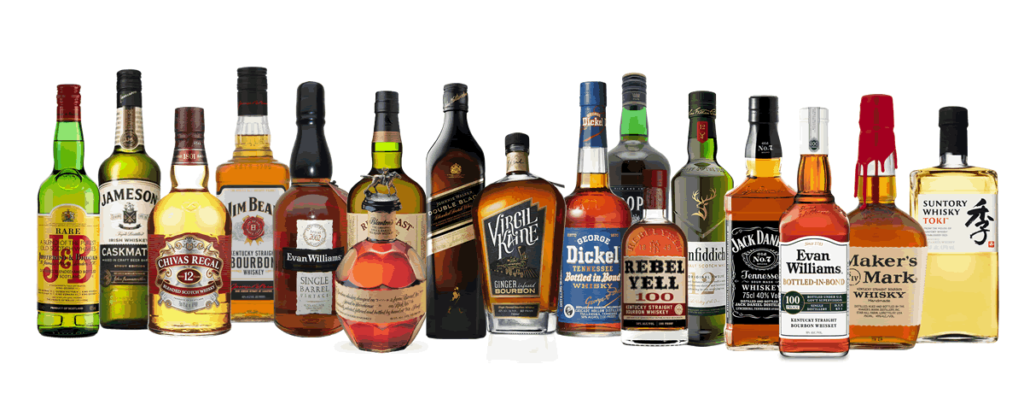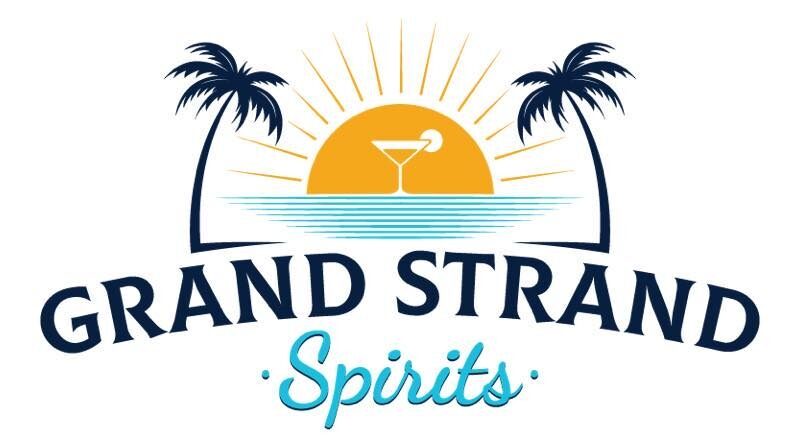
7 Types of Whiskey
In order to choose a style of whiskey you enjoy drinking the most, it’s important to understand the differences between each type.
Bourbon whiskey: Bourbon is American whiskey, often (though not exclusively) produced in Kentucky, that contains at least 51 percent corn in its mash bill, or grain makeup. Bourbon must be aged in newly charred oak barrels if produced in the United States, which makes for a typically nutty flavor profile and a mellow, caramelized sweetness.
Tennessee whiskey: A subtype of Bourbon, Tennessee whiskey is filtered through sugar maple charcoal before it is aged. This filtering method is the Lincoln County Process, and it is what gives Tennessee Whiskey its own unique flavor.
Rye whiskey: Rye a whiskey containing at least 51 percent rye in its mash bill. Like bourbon, rye must be aged in newly charred oak barrels if produced in the United States. In general, rye is lighter-bodied than many other whiskeys; you can identify it by its tingly spiciness.
Irish whiskey: To qualify as Irish whiskey, a spirit must be produced from malt, grain, and barley and distilled, aged, and bottled in Ireland. Irish whiskey must be aged in wooden casks for a minimum of three years. The more muted, malt character of Irish whiskey shines most when the spirit is aged in less conventional vessels like sherry casks or rum casks.
Scotch whisky: Scotch must be distilled, aged, and bottled in Scotland. Scottish law mandates that scotch be aged in oak casks for a minimum of three years. Scotch malt whisky producers traditionally operate in five specific Scottish regions: the Highlands, the Lowlands, Campbeltown, Islay, and Speyside. Scotch receives its smoky character from peat, a dense moss that is lit on fire to dry out the malted barley used in distillation. Unless a recipe calls for a certain scotch by producer or style, a blended scotch will be your best bet for most cocktails. Use a single-malt scotch if you’re drinking it neat or on the rocks.
Canadian whisky: Canadian whisky must be produced and aged in Canada, have a minimum of 40 percent ABV, and be aged for at least three years in wooden barrels no larger than 700 liters. Canadian whisky can also contain caramel and other flavorings, leading to a diverse range of tastes between brands.
Japanese whisky: Whisky is bottled in Japan but it isn’t necessarily distilled or aged there. Some Japanese whisky draws immediate comparisons to Scotch whisky, while other producers are constantly evolving, harnessing the unique qualities of indigenous Japanese oak.
Find out more at MasterClass
